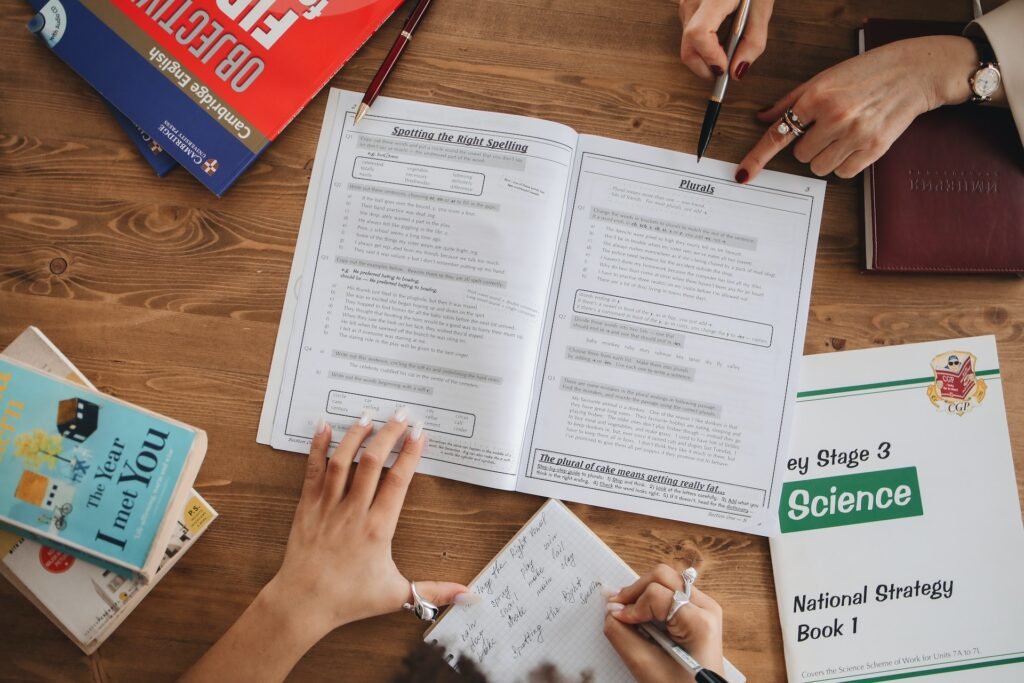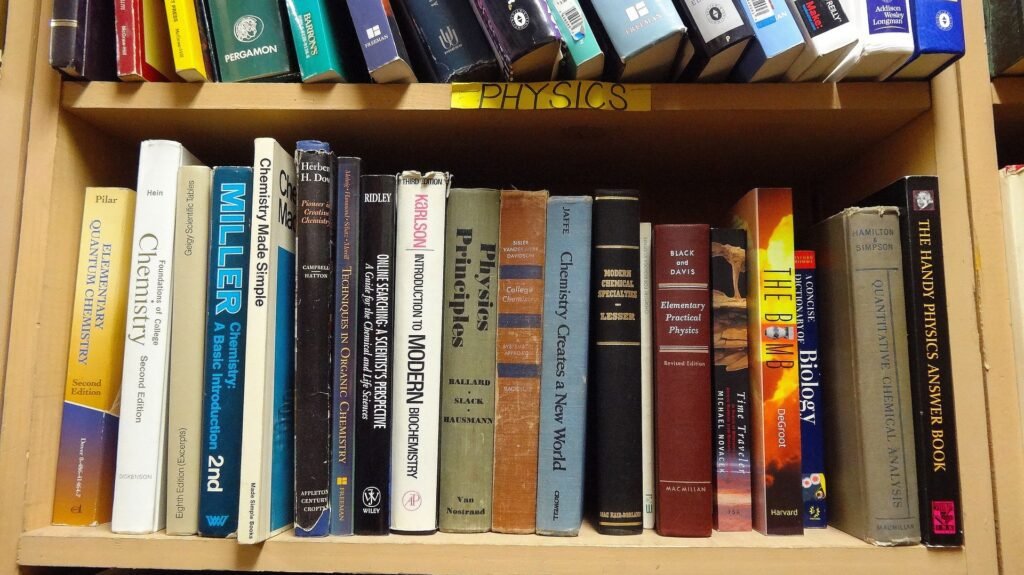Are you looking for an efficient way to gain knowledge and skills without breaking the bank? However, it might occasionally be challenging to find the best option. An education book is the best answer we have for you. With an education book you may personalize your educational experience, develop your critical thinking skills, and even prepare for exams by accessing a wealth of materials found within.
Read on to discover the 18 reasons why investing in an education book will help you completely explore new subject matter.

Jump right in! This comprehensive guide covers a lot – use the table of contents below to explore!
Table of content
- Easily Accessible
- Multifaceted
- Structured Learning
- Affordable
- Convenient
- Comprehensive
- Personalized Learning
- Develop Critical Thinking
- Analytical Skills
- Self Directed Learning
- Encourage Inquiry
- Active Participation
- Expand Knowledge
- Reflection and Application
- Knowledge Base
- Enhance Learning
- Review Material
- Stimulate Interest
- Conclusion
1. Easily Accessible:

Education books are indispensable resources for anyone wishing to expand their knowledge base. By offering access to a wealth of information from a plethora of sources, these books arm readers with diverse perspectives and concepts to explore. For example, geography education books provide readers with sophisticated interactive maps, insights into international economies, and a window into different cultures and environments.
Not only do education books provide readers with a well-structured learning experience, they also encourages readers to probe deeper into the material. What is more, these books grant access to resources and learning aids not available elsewhere, allowing readers to gain a thorough awareness of the topic. Ultimately, education books provide readers with knowledge, resources and engagement to aid them in maximizing their learning experience.
2. Multifaceted:
Educational books provide a wealth of knowledge and resources to those seeking greater understanding and insight into topics and subjects. By procuring an educational book, readers can gain access to the most up-to-date information, including interactive materials and engaging exercises which allow them to explore an area of knowledge unrecognized previously.
For example, should a reader have an interest in chemistry, they can use diagrams, illustrations and experiments found in an educational book to build a strong base in understanding the chemical reactions and atomic structures.

Furthermore, these books can afford readers the ability to be exposed to numerous perspectives, thus enhancing their understanding of the complex world we inhabit. Access to various ideas found in educational books provides readers opportunities to engage in discourse and sharpen their critical thinking skills by gaining valuable experience.
3. Structured Learning:
Education books are designed to supply learners with the skills and knowledge necessary for success. The resources within are designed to incorporate step-by-step instructions, diagrams, and illustrations that facilitate learning and help readers understand the material. Furthermore, education book provides activities, and strategies that allow readers to customize their own learning experience.

Education books often incorporate open-ended questions and scenarios that aim to stimulate readers’ curiosity and refine their critical thinking skills. Through a structured approach, these books have the capacity to take learners beyond simply acquiring knowledge, by prompting them instead to gain a deeper understanding of the subject. They achieve this by actively engaging learners to participate in their own education.
4. Affordable:
Education books offer a cost-effective approach to learning that can be highly beneficial to any learner. Compared to attending a physical class or enrolling in a virtual course. These books are typically more affordable and provide readers with an efficient and timesaving way to gain knowledge. What is more, education books are conveniently portable, so readers can take the material with them wherever they go.
This makes it possible for readers to appreciate the material at their own pace, enabling them to learn quickly, but in an organized manner. Investing in an education book provides users with a wealth of resources and information that can help them gain a deep and genuine understanding of their chosen subject. All in all, education books offer an accessible and practical option for gaining knowledge.

5. Convenient:
Traveling with an educational book can offer an unparalleled learning experience, as it enables readers to take their education with them wherever they go. Education books provide an easily accessible source of knowledge and resources, allowing learners to pursue and access their education no matter their location.
Rather than taking up physical classes, readers can bring their education book along and are free to move at their own pace; allowing them to actively self-direct their learning and foster their own interests. Additionally, education books offer a variety of exercises and open-ended questions, perfect to engage readers and keep their minds active.
Also, they provide access to virtual networks and forums, for discussion on the concepts and ideas presented in the book. Ultimately, education books provide a convenient way to explore global wisdom and gain knowledge from any location.

6. Comprehensive:

Education books are invaluable resources for learners, providing an in-depth and comprehensive overview of a subject. Carefully planned out, the material within the pages of an education book is designed to ensure readers gain an extensive understanding of the subject. This comprehensive coverage is further enhanced with visual aids, such as diagrams, tables, and illustrations, allowing readers to gain an enhanced perception of the material.
Furthermore, the material within an education book is typically organized in an easy to follow manner, providing step-by-step directions and explanations. This organizing of material allows readers to gain a firm foundation of the subject, upon which they can further develop their understanding and explore related topics. Education books, Therefore, present an opportunity to gain a profound insight into the complexities of a subject.
7. Personalize Learning:
Education books are the perfect tool for customizing one’s learning experience to their unique needs. No two learners are the same, and an education book can be tailored to accommodate individual learning styles. A reader can progress through an education book at their own pace, quickly moving past sections they are already familiar with and lingering on sections that present more of a challenge.
Additionally, the material is usually organized in an easy-to-follow, step-by-step format; allowing readers to easily access the information they need. Furthermore, many education books include interactive exercises and activities that can be adjusted to match the reader’s level of competency. Therefore, education books can not only provide readers with an extensive knowledge base, but also the opportunity to customize their learning experience for their own success.

8. Develop Critical Thinking:
Education books can play an instrumental role in cultivating critical thinking skills and fostering a more profound comprehension of the subject matter. By reading and engaging with the material from an educational point of view, readers can acquire the fundamental principles, theories and facts related to a certain topic and then apply them to the real world.
Moreover, many education books offer analytical exercises and activities which aid readers in delving deeper into the content and putting their understanding to use in certain contexts.

Furthermore, some education books may also include open-ended questions and essay prompts, allowing readers to analyze the material from diverse angles and evaluate it using their possessed knowledge. In this way, educational books may encourage readers to develop and refine their critical thinking skills while guaranteeing that they acquire a more thorough knowledge of the subject.
9. Analytical Skills:
Educational books encourage readers to not just consume the material, but also to analyze and evaluate it so they gain a deeper understanding. Through this thoughtful and considered approach to reading, readers can not only become knowledgeable on the topic, but also learn how to apply the concepts to the real world.
In addition, by prompting readers to think critically, education books foster an environment in which readers reach their own conclusions and grow their analytical and critical thinking skills. Open-ended questions, essay prompts and other engaging elements within the text provide readers with a comprehensive grasp of the material, making education books essential for those learning something new.

10. Self Directed Learning:
Education books allow readers to take a self-directed approach to learning, fostering a greater sense of ownership and accountability for their knowledge. Self-directed learning provides readers with the freedom to work at their own pace and focus on subject matter pertinent to them. Readers can even tailor their curriculum to meet their individual needs, granting them control over their learning and ensuring they acquire knowledge of utmost value.

Moreover, self-directed learning encourages readers to set their own objectives and take responsibility for achieving them. By maintaining manageable goals and investing effort, readers can cultivate a heightened sense of ownership and commitment to their education.
11. Encourage Inquiry:
Educational books often include open-ended questions to challenge readers to reflect on the presented material and engage more deeply with the subject. These questions foster further exploration of the material beyond the stated facts and allow readers to draw their own conclusions. By encouraging an inquisitive mindset, open-ended questions promote the development of readers’ critical and creative thinking skills.
Moreover, open-ended questions often prompt readers to push past the course syllabus and pursue additional research, such as examining case studies and interviewing experts for their insights. Ultimately, open-ended questions help readers become more actively engaged with the topic, allowing them to better understand the material at hand.

12. Active Participation:
Education books typically incorporate activities and exercises designed to stimulate readers and foster a participatory learning process. These activities can range from writing prompts, discussion questions, and problem-solving challenges to realistic application of the book’s materials.

Furthermore, these activities are easily adjusted so they are tailored to an individual’s needs, providing a thoroughly personalized learning experience. These creative exercises support readers in their journey to mastery and encourage achievement. Clearly, by offering engaging and tailored activities, education books make learning both interactive and meaningful.
13. Expand Knowledge:
Education books offer an incomparable resource for expanding readers’ knowledge and horizons. From philosophy and politics to science and geography, these texts provide comprehensive explorations of a wide range of topics. These topics enable readers to engage with subjects they may not have encountered previously, or to improve their understanding of areas already familiar to them.

By reading education books, readers are able to gain insight into both sides of a debate, while simultaneously discovering the manifold beauty and diversity of the world around them. Education books thereby provide an invaluable opportunity for those seeking to expand their understanding and appreciation of the world.
14. Reflection and Application:
Education books help readers comprehend the material, ponder its effects on their daily lives, and contemplate real-world implications. Reading an education book allows one to gain an enhanced understanding of the subject matter, plus consider political and social repercussions. It also invites open-ended questions to spark one’s creativity and foster critical thinking.

Additionally, reading an education book provides an opportunity to analyze & interpret the information and put it to personal use. Reflecting on the material can broaden one’s understanding, providing insight on how to benefit from the knowledge.
15. Knowledge Base:
Education books provide readers a solid foundation of knowledge on which to build further understanding. They give concise, comprehensive info on specific topics, allowing readers to gain an overview of a subject before diving deeper.
Reading an education book enables readers to gain a better understanding of the subject, key concepts and related terms, as well as develop essential critical thinking, analytic and problem-solving skills. Education books serve as the perfect starting point for readers who wish to gain a greater understanding of a subject.

16. Enhance Learning:
Education books aid learning for students in engaging, memorable ways. They can provide access to knowledge without the price tag of classes or online courses, enabling individuals to gain new understanding about the world around them. Activity & exercise sections can keep students invested and motivated, and help foster active participation.

Additionally, these books can augment one’s analytical skills, as well as reading, writing, and tech know-how. All-in-all, they are an invaluable resource for getting a full understanding of a certain subject.
17. Review Material:

Education books are a great resource for students. They review material already learned, providing exercises, activities and open-ended questions to understand concepts. This allows customizing individual learning needs. Education books also provide a structured approach, helping retain key points and keep students focused. All in all, education books are effective for learning.
18. Stimulate Interest:
Education books provide visual elements, activities, and examples to help readers better understand the material. Charts, diagrams, and pictures help visualize concepts, while activities engage readers and make the material more memorable. Open-ended questions encourage readers to think more deeply and apply the material to their lives.
Examples can clarify and illustrate abstract concepts, making them easier to understand. This combination of images, activities, and examples boosts readers’ interest and improves comprehension.

conclusion:
Education books provide a wealth of knowledge for readers to use. Beneficial in many ways, the organized approach offered by these books can help improve comprehension and writing skills, analyze data, and even aid in exam preparation. With these advantages, it’s clear why an education book is invaluable for any learner. Full of knowledge, these resources can help in expanding one’s knowledge base, fostering analytical abilities, and gaining necessary skills.
Checkout our blog on: Education Galaxy – Unlocking Limitless Possibilities For Learning


Pingback: Comprehensive Education Books -
Pingback: Affordable Education Books -
Pingback: Education Galaxy - Unlocking Limitless Possibilities for Learning -